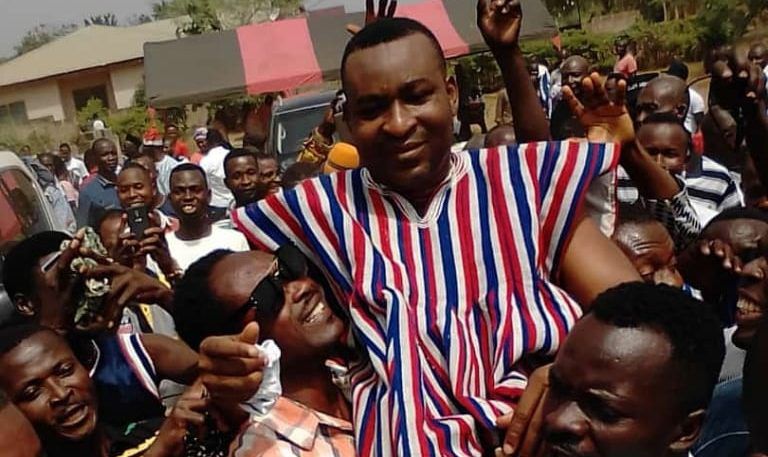Professor Yusuf Usman has painted a grim portrait of Nigeria’s current democratic landscape, declaring that Nigeria’s democracy, 26 years old and unbroken, has never been more imperiled than it is today.
He stated this while speaking at the 2nd Posthumous Anniversary Colloquium in honour of the late media mogul and founder of DAAR Communications Plc, High Chief Raymond Aleogho Anthony Dokpesi.
Prof Usman described the current Nigerian administration as a “Recklessly run, self-serving, propaganda-fueled, corruption-ridden” administration, accusing it of deepening national divisions and neglecting the plight of ordinary Nigerians. “There is nothing that imperils democracy more than hunger,” he said, warning that a government disconnected from the people’s suffering invites instability.
Professor Usman criticised the increasing militarisation of politics and the overreliance on security forces to manage civil unrest caused by bad governance. “Security is not the responsibility of the military alone,” he said. “It is the collective duty of leadership and society to prevent crises, not just respond to them.” Citing alarming levels of hunger, malnutrition, and displacement, he described hospitals overwhelmed by patients whose primary diagnosis is poverty and hunger. “We see the sufferings of our people in hospitals. Every illness is layered with hunger,” he added.
Addressing issues of justice and equity, Usman highlighted the government’s failure to reflect national diversity in its appointments. “Over 70% of the president’s appointments are from one region,” he said. “This violates the spirit of our constitutional democracy.” He condemned the silence of the National Assembly, accusing lawmakers of abandoning their duty as checks on executive excesses. “They are singing, ‘On your mandate we stand,’ instead of holding the government accountable,” he lamented.
Usman also tackled the disillusionment of the youth and the dangers of growing social inequality. “Over 20 million children are out of school. They will pick up arms and come after us,” he warned, underscoring the long-term dangers of neglect. Reflecting on a more inclusive and hopeful past, he recalled a Nigeria where education and health care were accessible to all and where diversity was a strength. “We are better than this,” he said. “Religion and ethnicity are not our problems, bad leadership is.”
During the panel discussion, Professor Salihu Lukman reflected on the global concern over the decline of democracy, stating that Nigeria’s struggle is part of a broader trend but also deeply rooted in its unique internal challenges.
He recounted a recent conversation with young people from the South-South who raised questions about inclusion in a proposed political coalition. Lukman told them that the issue was not merely who gets to contest elections but the fundamental lack of genuine political parties in Nigeria.
He criticised existing parties for lacking internal democracy and accountability, often producing leaders who function like unregulated overlords. According to him, political leadership in Nigeria must evolve beyond being answerable only to aspirants or incumbents. He said party chairmen should have the moral and institutional weight to challenge even the president when necessary.
Lukman warned that unless party structures are rebuilt on ideological and institutional foundations, Nigeria will continue to repeat a cycle of political disillusionment. He urged Nigerians, especially young people, to abandon the notion of waiting for perfect conditions before engaging in politics, adding that the country’s democratic revival depends on a collective spirit of sacrifice and civic duty.
Furthermore, Dr. Dakuku Peterside called for serious introspection on Nigeria’s democratic journey, likening the current state of affairs to the halfway point of a marathon that requires self-examination.
He said democracy must be assessed through the lenses of sovereignty, freedom, and development, and questioned whether power genuinely resides with the Nigerian people or is monopolised by the executive.
He described the prevailing conditions of insecurity, hunger, poor education, and economic hardship as indicators that Nigerians are not truly free. He argued that true freedom must include freedom from want and fear, not merely freedom of movement.
On development, Peterside cited alarming statistics, including rising inflation, ballooning debt, and the staggering reality that 133 million Nigerians live in multidimensional poverty. He dismissed the belief that holding periodic elections equates to practicing democracy, referencing international indices by Freedom House, V-DEM, and the Economist Intelligence Unit that classify Nigeria as a fragile electoral autocracy.
Peterside criticised the collapse of checks and balances, particularly the rubber-stamp tendencies of the National Assembly and the judicial controversy that trailed the 2023 elections. He reminded the citizens that democracy is not a gift to be taken for granted but a system that must be actively defended and preserved by the people.
In her opinion, Comrade Ene Obi brought both personal reflection and systemic critique to the conversation. She began by honouring Chief Dokpesi’s memory, highlighting his empathy, warmth, and concern for national crises such as the conflict in Benue State.
Turning to Nigeria’s democratic challenges, she criticised the Buhari administration’s promise to lift 100 million Nigerians out of poverty by 2030, describing it as political rhetoric disconnected from realistic timelines and responsibilities.
Obi recalled how civil society had long proposed viable social protection policies inspired by Brazil’s Bolsa Família, which were largely ignored by successive governments. Although the Buhari administration eventually adopted some social protection measures, she questioned their depth, sustainability, and sincerity.
She argued that Nigeria’s democratic decline is driven by a culture of political correctness that masks an absence of accountability and performance. For her, democracy should result in meaningful transformation and improved livelihoods, not just the conduct of elections. She said true leadership must reflect the needs and aspirations of the people, not be preoccupied with managing optics.
From his side, Dr. Sam Amadi offered a philosophical and institutional analysis of the country’s democratic crisis. He began by celebrating Chief Dokpesi’s legacy, describing him as a fearless and inclusive leader, particularly known for empowering women and defending press freedom.
Amadi recounted Dokpesi’s bravery during regulatory crackdowns on his television station, AIT, stating that he was often the boldest voice in defending press rights, even more so than many of his younger colleagues.
Shifting to the broader democratic condition, Amadi warned that Nigeria’s democracy is in decline, not through the dramatic collapse seen in military coups, but through a more insidious process where elected leaders use democratic structures to undermine democracy itself.
He said this model of democratic failure is increasingly visible around the world, including in advanced democracies like the United States. Amadi identified a third kind of failure in Nigeria: a democracy that exists in form but not in function, where elections occur regularly but yield no meaningful development or change in citizens’ quality of life. This, he said, is fueling mass disillusionment and apathy, as many Nigerians no longer believe that democracy can improve their lives.
He warned that the country’s political elite is operating on autopilot within a system that is steadily losing legitimacy. Amadi reiterated his long-standing advocacy for radical electoral reform and restructuring of political parties as non-negotiable steps for salvaging Nigerian democracy.











